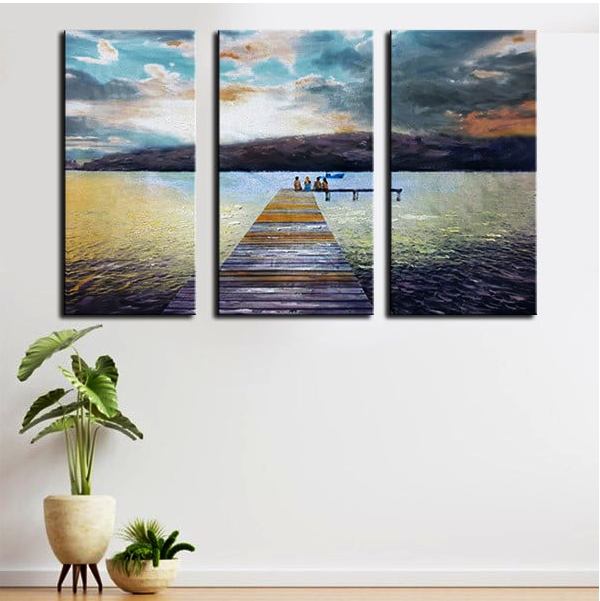Exploring Abstract Interpretations of Photo to Painting Conversions
Let us begin!
The Evolution of Photo to Painting Conversions
Photo to painting conversions is not a novel concept. For centuries, artists have recreated photographs as paintings, often aiming for lifelike representation. However, the advent of digital technology has significantly altered the landscape of this practice. Advanced software and algorithms allow artists to meticulously replicate textures, brushstrokes, and color palettes, blurring the lines between the original photograph and the painted outcome.
Yet, some artists are taking a different path by embracing abstraction. Instead of striving for realism, they use digital tools to reinterpret photographs through the lens of abstract art. This shift offers a unique opportunity to transcend the boundaries of traditional representation and delve into the realms of emotion, expression, and imagination.
Abstract Interpretations: Embracing the Unknown
Abstract art, emphasizing form, color, texture, and composition, allows artists to communicate feelings and ideas extending beyond the visible world's confines. When applied to photo to painting conversions, abstraction offers a wonderful chance to explore new dimensions of creativity:
Expression of Emotion: Abstract interpretations enable artists to infuse their emotions and perspectives into the artwork. By distilling the photograph's essence, they can convey feelings that might be obscured in a more literal representation.
Freedom of Interpretation: Abstraction encourages viewers to engage with the artwork deeply. Without the constraints of realism, individuals are free to interpret the artwork in a way that resonates with their experiences and emotions.
Exploration of Form and Composition: The transition from a photograph to an abstract painting challenges artists to reexamine the fundamental elements of art – shapes, lines, balance, and rhythm. This exploration often leads to innovative compositions that provoke thought and curiosity.
Color as a Language: Color takes on heightened significance in abstract interpretations. Artists can use color palettes to create moods, convey energy, and guide the viewer's emotional response, creating a more immersive and contemplative experience.
The Role of Technology
The marriage of technology and art has paved the way for revolutionary creative possibilities. With the aid of digital tools, artists can experiment with various abstract techniques, such as geometric abstraction, gestural expressionism, and even algorithmically generated art.
The advanced software not only allows artists to manipulate photographs but also provides a canvas for artistic experimentation. From digital brushes that simulate traditional mediums to algorithms that generate intricate patterns, technology enables artists to push the boundaries of their creativity.
The Viewer's Journey
Engaging with abstract interpretations to Turn Photo to Painting can be a transformative experience for viewers. As they navigate through a familiar and abstract world, they are prompted to introspect, question, and delve into their interpretations.
The viewer's journey becomes a dynamic process of discovery, where they decode the artist's intentions, explore their own emotions, and embrace the interplay between reality and imagination. Every viewer brings a unique perspective to the artwork, enriching the narrative and expanding the boundaries of meaning.
Conclusion
The exploration of converting photos to paintings at Snappy Canvas represents a captivating convergence of technology, photography, and abstract art. By departing from traditional realism, artists open doors to uncharted territories of expression, emotion, and imagination. This transformative practice challenges viewers to look beyond the surface and engage with the interplay of forms, colors, and compositions.
As technology continues to evolve, the creative experimentation possibilities will only expand. This evolution encourages artists to continually redefine the boundaries of their craft and embrace the infinite potential of the abstract realm. In a world where artistic expression knows no bounds, the journey from photograph to abstract painting is a testament to human creativity's boundless capacity.

.jpg)


Comments
Post a Comment